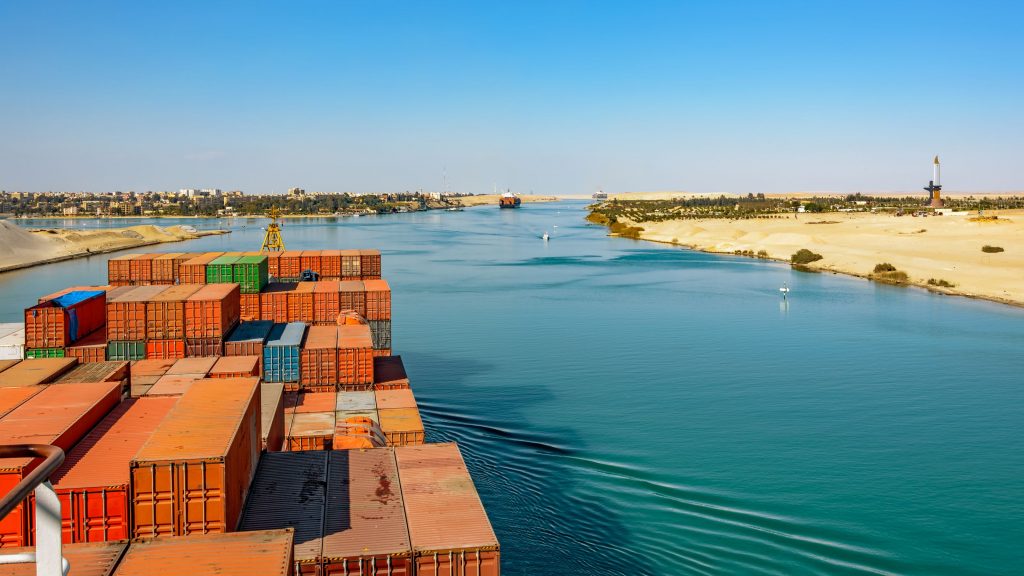The Suez Canal Authority has reduced fees for container ships crossing the Suez Canal until 30 June. Fees will be slashed by 60%-75% for transit container ships originating from the US and heading to destinations in Southeast Asia. Container ships originating from Northwest European ports and the ports of Tangier and Algeria, also heading to Southeast Asian ports, will see fees reduced by 17% as of 1 May and until 30 June. The SCA has regularly been offering discounts to vessels passing through the canal in a bid to attract more traffic.
With shippers seeking longer transit times during coronavirus lockdowns, carriers are considering routing some Asia-North Europe headhaul voyages via the Cape of Good Hope. It was reported that CMA CGM had re-routed its 16,020 teu CMA CGM Alexander Humboldt to Asia via South Africa, taking advantage of plummeting bunker prices and saving Suez Canal tolls.
Routing a ULCV from North Europe via the Cape means adding around 3,500 nautical miles and approximately 10 days to the scheduled transit. But despite a recent discount announced by the Suez Canal Authority (SCA), a carrier source informed the toll for the waterway could still be “around $500,000”, against additional fuel costs estimated at some $200,000.
“With bunkers so cheap at the moment, it’s a no-brainer for the backhaul voyage, particularly if you have a scrubber-fitted ship, and with so many blanked headhaul voyages coming up, some of these vessels will be idled after they discharge,” he said.
The last time carriers re-routed North Europe to Asia ships around the Cape was in early 2016, when a combination of record idle tonnage, rock-bottom freight rates and a collapse in oil prices pushed carriers to look at every possible way to save voyage costs.
However, on this occasion rates are stable for now, due to proactive capacity management by the carriers, which are able to benefit from plunging bunker prices – even the more-expensive low-sulphur fuel is currently on offer at Rotterdam for around $250 per ton, compared to $450 per ton for traditional heavy fuel a year ago.
“With nobody wanting containers in North Europe anytime soon, due to the lockdowns, I can see that shippers that cannot cancel orders will be looking for the slowest possible transit from Asia, for as long as this crisis lasts,” said the source.
This would mean a substantial loss of revenue for the SCA, already suffering from a demand slump resulting from the coronavirus outbreak.






